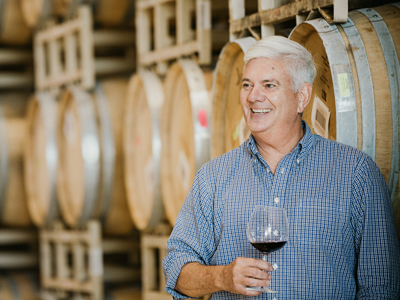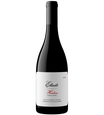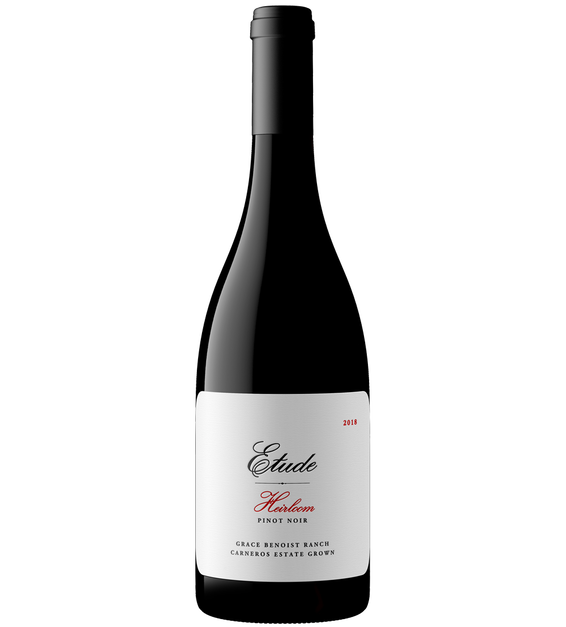Etude
2018 Etude Heirloom Grace Benoist Ranch Carneros Pinot Noir
Tasting Notes
Impressive and elegant, the 2018 Heirloom Pinot Noir is the epitome of our beloved estate vineyard, with incredible structure, depth and balance. Vibrant and expressive, with exuberant red berries jumping from the glass, immediately you’re overcome by notes of dark black cherry, red raspberry, cola spice, orange pekoe tea, and delicate chaparral herbs of bay laurel, lavender and rosemary, which all delicately interweave seamlessly. On the palate you find bright acidity and layered red berry flavors alongside fine-grained tannins and finishing with a hint of minerality and earth. A true buoyancy is shown in this distinctive wine, with lifted acidity, while also exhibiting a generous mouth-coating structure, a long persistence, and lithe silky texture. Certain to age gracefully for the next 5-10 years if cellared properly.Technical Information
| Varietal | Pinot Noir |
|---|---|
| Vintage | 2018 |
| Volume | 750mL |
| Blend | 100% Pinot Noir |
| Alcohol % | 14.2% |
| Enclosure Type | Cork |
Scores & Accolades
-
96JamesSuckling.com - “This is such a gorgeous pinot with old-vine character, because of the heirloom vines. Dried strawberries, flowers and hints of spice. Olives, too. Medium to full body with a dusty texture and very pretty berry and cherry character. Real Carneros pinot! So good now, but better in a year or two.” - James Suckling, August 2021
-
94Vinous - “The 2018 Pinot Noir Grace Benoist Heirloom stands out in this range for its savory, spiced profile. Sweet red cherry, spice, mint, cedar and sweet pipe tobacco. There is a bit of whole cluster that works well in adding complexity without dominating the balance. Time in the glass brings out the wine's aromatic lift and very pretty floral top notes. The Heirloom is a selection of nine clones across the properties. It's another gorgeous wine from Etude in 2018.” - Antonio Galloni, March 2021
Winemaking
The grapes for this wine were handpicked at night to preserve freshness and acidity. They were placed in open-top fermenters for 3-5 days of cold maceration followed by fermentation. Some 20 percent of the fruit was kept whole cluster during fermentation to add further complexity, buoyancy of aromatics and an element of structure and refinement. We performed punch downs during the early stages of fermentation with the extraction becoming gentler as the wine became dry, and followed with a quiet extended maceration to help enhance the richness and mouthfeel of the wine. We lightly pressed the wine into small French oak barrels where it rested for 14 months. The wine was bottled with no fining or filtration.Vintage
In the micro-climate of the Carneros, a near perfect season was welcomed after several tense vintages, beginning with abundant February rains followed by drying sun and weather that allowed for even flowering and bud break. The slightly later start was followed by consistently ideal weather, with harvest for Pinot Noir occurring in late August and early September. Generally normal to heavier fruit-set with great flavor intensity and complexity will be the hallmark of the season.Vineyard
Grown on the Etude Estate Vineyards at Grace Benoist Ranch, the grapes for our Heirloom Pinot Noir come from shy-bearing selections that produce small bunches and even smaller berries. Although some may overlook these vines due to their extremely low yields, we prize their ability to produce wines that are both expressive of their genetic origins as well as providing a unique flavor profile, which exemplifies the varied site and diversity of soils on which they’re grown.


